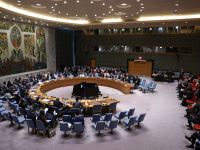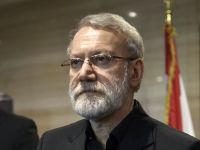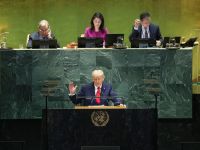The global oil crisis which will dominate this week's OPEC summit in Caracas is nothing new for the 40-year-old organisation.Since its founding in Baghdad in 1960, the Organisation of Petroleum Exporting Countries (OPEC) has experienced highs and lows, from the 1970s oil crises to the 1990 Gulf War, and the Asian economic slump three years ago.
It is a mere coincidence that the 11-member group is holding the summit, only the second such meeting in its history, amid protests worldwide fueled by crude prices which have surged to 10-year highs.
Perhaps, as they meet in the Venezuelan capital on Wednesday and Thursday, they will reflect on what lessons can be drawn from previous crises.
The group was formally launched in Baghdad on September 14, 1960, after four days of tough talks between five main petroleum producers: Saudi Arabia, Venezuela, Kuwait, Iran and Iraq.
At a time of abundant supply and cheap oil, the launch was barely noticed. It seemed it was a mere defence mechanism trying to hold up the market when it was in surplus.
The New York Times wrote at the time that a cartel had been born, but that even if the Soviet Union joined in,"it will only last a year or two." After that, the newspaper predicted, everything would be back in order.
The five founder members of OPEC were gradually joined by eight other countries -- Qatar, Libya, Indonesia, United Arab Emirates, Nigeria, Algeria, Ecuador and Gabon. It moved its headquarters to Vienna in 1965.
It was only after Colonel Moammer Kadhafi's 1969 coup d'etat in Libya that OPEC members realised their power, by raising prices and nationalising the foreign oil companies.October 1973 saw a historic price-fixing agreement between Iran and Saudi Arabia, just as the Arab-Israeli war was starting.
That accord constituted the start of a series of price rises decided without consulting the majors. In three months, prices quadrupled and had quintupled by the end of 1974.
After the United States granted military aid to Israel, the Arab countries, responsible for 60 percent of OPEC production, decreed an oil embargo against the US and the Netherlands, perceived as pro-Israel.
The Netherlands, homeland of Shell, and the US, which was supplied by Iran, did not suffer too much, but the boycott provoked a counter-move by the importing countries, who set up the International Energy Agency in 1974.
A year later, on Christmas day 1975, the international terrorist Carlos took OPEC ministers hostage in Vienna.Subsequently, OPEC tried to establish a joint pricing policy, amid infighting. In 1979, a year after the Iranian revolution, there was a surge in oil prices amid fears of a shortage, and for the first time OPEC was incapable of fixing a reference price for its crude.
From 1986, oil became cheap again -- but only until 1990 when the Gulf war shook oil markets to their core, sending prices surging above 40 dollars a barrel -- a level which some analysts say it could reach again this winter.
Then, in November 1997, in Jakarta, OPEC made the fatal mistake of raising its production by 10 percent, without taking into account the Asian crisis. Prices crashed by 40 percent, almost putting OPEC to death.
It took the organisation nearly a year and a half to remedy the situation. In March 1999, the cartel decided to reduce production to revive prices, which were down at 10 dollars a barrel.
The strategem worked -- and how. Prices tripled within 12 months. A series of price hikes this year has failed to stem the rise, which reached 10-year highs this month, sparking the latest crisis.
Some analysts have even compared the current oil situation to the historic oil high-price shocks in 1973 following the Arab-Israeli war, and in 1979 after the Shah of Iran's fall from power.
"It can be argued that a third 'oil shock' began in March 1999 and is now gaining momentum," wrote Philip Verleger of the Institute for Economics Policy in a recent research paper.—AFP.
©--Agence France Presse.
© 2000 Mena Report (www.menareport.com)







